DEGREE PROGRAMS
-
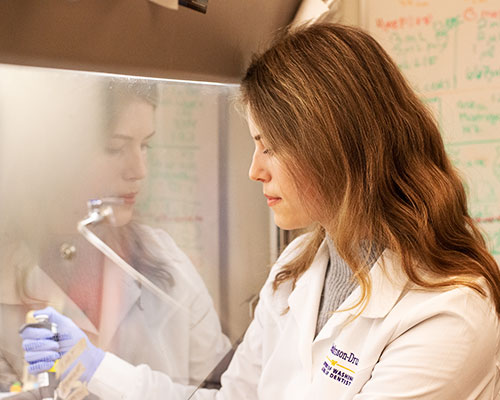 PhD Program
PhD ProgramPhD Program
Doctor of Philosophy degree is designed for students desiring extensive research training as well as in-depth course work in oral health sciences.
Program Information -
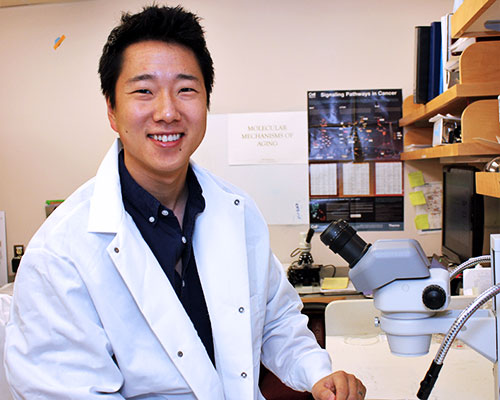 DDS/PhD Program
DDS/PhD ProgramDDS/PhD Program
DDS/PhD combined training is available for students committed to an academic or research career. This is a minimum 8 year program and combines the DDS curriculum with studies directed toward a PhD in Oral Health Sciences.
Program Information -
 MS Thesis Program-Suspended
MS Thesis Program-SuspendedMS Thesis Program-Suspended
Master of Science degree thesis program has been suspended.
Program Information -
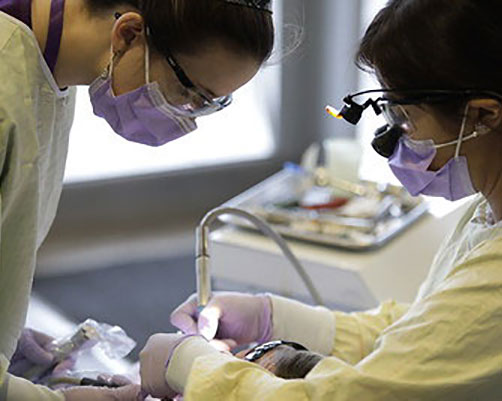 MS Dental Hygiene Program
MS Dental Hygiene ProgramMS Dental Hygiene Program
Master of Science in Oral Health Sciences for Dental Hygienists is available for dental hygienists who seek careers as dental hygiene educators. This pathway emphasizes training in basic and applied dental science as well as a research experience. This program requires a capstone project but not a thesis.
Program Information
ADMISSIONS PROCESS
Applications open on September 1, 2025. The closing date is January 15, 2026.
Applications and all required application materials must be submitted by the deadline. Applications or documents received after the deadline will not be considered. Oral Health Sciences accepts applications for Summer or Autumn Quarter start only.
Please contact the OHS Graduate Program (ohsgrad@uw.edu) with questions after reviewing the information below.
The Graduate School of the University of Washington is administratively responsible for admissions to graduate study. To apply to the Graduate Program in Oral Health Sciences, applicants must submit an application to the UW Graduate School as well as meet all requirements set forth by the Graduate School. The nonrefundable application fee is $90.00 (USD). Unfortunately, applicants studying on F or J visas are not eligible for application fee waivers. You can find information on the Graduate School’s policies and procedures, along with a link to the on-line application, on their page Understanding the Admissions Process.
Information for underrepresented and minority applicants, including programming, resources and funding opportunities and can be found at the page Graduate School’s Equity & Justice in Graduate Education.
PhD, DDS/PhD
- Applicants must have either a four-year baccalaureate degree in the life sciences (e.g. Microbiology or Biochemistry) from a regionally accredited college or university in the U.S. or equivalent or a professional degree from a Dental or Medical School (e.g. DDS, DMD, MD). We seek applicants who show great promise of successful careers in research with an interest in teaching. Our applicants typically have strong undergraduate records as well as previous laboratory experience and demonstrated skills in life sciences or public health research.
- A minimum 3.0 grade point average (on a 4.0 scale) for the last graded 60 semester credits or 90 graded quarter credits.
- Demonstrated English Language proficiency for all Graduate School applicants whose native language is not English. Minimum English Language Proficiency scores required:
- 7.0 on the IELTS
- 92 on the TOEFL ibt
- 125 on the Duolingo
- When submitting official TOEFL scores, use institutional code 4854 for the University of Washington.
GRE scores are not required for admission.
PhD/DDS applicants must also meet the DDS Admissions requirements.
MS DH
- Applicants must have either a four-year baccalaureate degree in dental hygiene from a regionally accredited college or university in the U.S. or equivalent or an associate degree in dental hygiene from a regionally accredited college or university in the U.S. or equivalent plus a four-year baccalaureate degree in any area.
- A minimum 3.0 grade point average (on a 4.0 scale) for the last two years of study.
- Demonstrated English Language proficiency for all Graduate School applicants whose native language is not English. Minimum English Language Proficiency scores required:
- 7.0 on the IELTS
- 92 on the TOEFL ibt
- When submitting official TOEFL scores, use institutional code 4854 for the University of Washington.
GRE scores are not required for admission.
PhD, DDS/PhD
All applicants for the DDS/PhD combined training program need to apply for both programs for Summer Quarter start only.
- UW Graduate School online application and fee.
- CV/resume
- Three letters of recommendation. We prefer that the letters of recommendation come from faculty or professional supervisors who know you well enough to provide us with an objective evaluation of your potential as a graduate student.
- Research Statement (1.5 pages in length)
- What is your total amount of full-time research experience (in months)? What is your total amount of part-time research experience (in months, hours/week)?
- Please provide a bullet-point list of your different research experiences including summer research internships, academic year research, post-baccalaureate, and/or work-related experiences. For each experience, include the institution, department, lab head name, and project title.
- Pick one research experience and explain it in a little more depth. Provide a) the public health burden, b) what we know now, c) the knowledge gap that is impeding progress in the field, d) the model system deployed to address this knowledge gap, e) the hypothesis being tested, f) results you generated, g) whether those results support the hypothesis.
- Statement of Purpose (one page in length)
- Why is obtaining a PhD necessary to your future goals?
- What areas of oral health research interest you and why are you specifically drawn to the OHS Graduate Program?
- Which OHS faculty members’ research are you most interested in and why? This includes adjunct or affiliate faculty in other departments. Faculty profiles can be found on the OHS faculty directory.
- Optional Personal Statement (half page in length). Please include anything that puts your application in a broader context of your lived experience.Why we are asking this: We are actively working to increase diversity, equity, and inclusion in our department. People who apply for advanced degrees come from a diversity of backgrounds and world experiences. You may have already discussed your experiences in the answers above, but if you have anything that you would like to add you are welcome to include it here.
- Unofficial transcripts from all universities attended. You will only need to submit official transcripts directly to the Graduate School if you are offered acceptance.
- Proof of English language proficiency if English is not your native language.
- PhD/DDS applicants must also submit the DDS Admissions required materials.
MS DH
- UW Graduate School online application and fee.
- CV/Resume
- Three letters of recommendation. We prefer that the letters come from faculty or professional supervisors who know you well enough to provide us with an objective evaluation of your potential as a graduate student.
- Statement of purpose (one page in length)
- Why is obtaining the Master’s Degree in Oral Health Sciences for Dental Hygienists necessary to your future goals?
- What areas of oral health and dental hygiene interest you and why are you specifically drawn to the MS DH graduate degree?
- Which OHS faculty members’ research are you most interested in and why? This includes adjunct or affiliate faculty in other departments. Faculty profiles can be found on the OHS faculty directory.
- Unofficial transcripts from all attended institutions. You will only need to submit official transcripts directly to the Graduate School if you are offered acceptance.
- Proof of English language proficiency if English is not your native language.
You are an international applicant if you are NOT a U.S. citizen, immigrant, or green card holder. International students must have a visa status that allows for academic study at the University of Washington. If accepted, all international applicants must show proof of financial ability. This information will be provided on your graduate application after you have accepted the offer of admission. Additional international applicant information.
Potential applicants are strongly encouraged to contact ohsgrad@uw.edu for questions about funding prior to applying.
Tuition
Please refer to the tuition and fee rate schedule for the most current tuition rates.
Graduate Fellowships and Assistantships
OHS most commonly employs three types of financial assistance for graduate students: research assistantships, T90/R90 traineeships and fellowships. OHS does not offer teaching assistantships, but OHS graduate students may apply to relevant TA positions outside of the department.
Research Assistantships
The RA appointment requires that you conduct research under the direction of a faculty member. This could include research planning, experiment setup and measurements, computational analysis, or theoretical analysis of a problem. The appointment typically requires that you work an average of 20 hours per week during the period of support. Students should meet regularly with your faculty supervisor to discuss progress and set goals. It is student’s responsibility to make satisfactory research progress.
Traineeships
T90/R90 NRSA traineeships may be available to students who are U.S. citizens/permanent residents (T90), or a non-U.S. citizen/permanent resident in pursuit of a PhD, who already holds a dental degree (R90). The traineeships are federally funded, competitive awards that support academic study and research without requiring service. Recipients are responsible for meeting all fellowship requirements, including enrollment and reporting. OHS collaborates with the SOD Office of Research to administer the training grant.
Fellowships
Fellowships are competitive awards that generally do not require service (i.e., work) as part of the award. They are intended to fund your academic study and research. Fellowships may be offered by department, the University, the federal government or private agencies. Every fellowship has different provisions, so take note of what is offered. Similar to the traineeship, remember it is your responsibility to ensure all requirements are met, such as enrollment or reporting to the funding agency.
Graduate Funding Resources
- UW Graduate School: Find Funding and Learn about Assistantships and Fellowships
- Office of Fellowships and Awards
- Graduate Funding Information Services (GFIS)
- ProFellow
Additional Funding Sources
- Achievement Rewards for College Scientists (ARCS)
- ADEA Scholarships (MSDH Students)
- ADHA Scholarships (MSDH Students)
- GSEE: The Office of Graduate Student Equity and Excellence
- Graduate Student Conference Travel Awards
- Magnuson Scholarship
RESEARCH
Biology of Aging
Cancer Biology and Virology
Community, Public Health and Health Services Research
Dental Hygiene Training and Research
Microbe-Host Interactions and Immunology
Orofacial Development, Structure and Function
Pain
Pharmacology and Drug Metabolism
Salivary Gland Biology and Salivary Diagnostics
Stem Cell Biology, Biomaterials and Tissue Engineering
STUDENT PROFILES
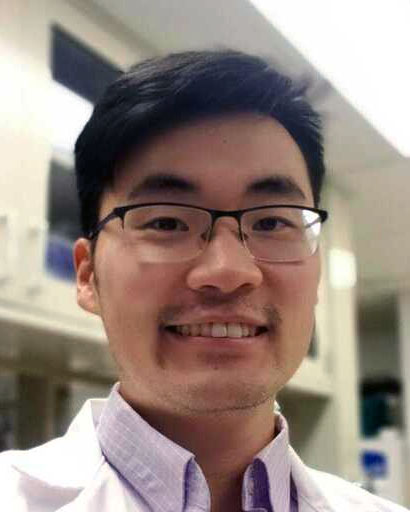
Derrick Tang, MS
PhD Student
What do you enjoy about being an OHS PhD student? I enjoy the freedom and flexibility within the Graduate Program for pursuing my dissertation topic, as well as the enthusiastic conversations I have with my professors and peers from a variety of related disciplines, including genetics, microbiology, and material science. Public speaking is often cited as a common fear, but the frequent opportunity to present your work during retreats, seminars, and classes has turned something daunting into a fun and rewarding lifelong skill.
What are you currently researching? Our lab studies how the brain controls feeding, an essential and frequent oral behavior. Specifically, I’m investigating how food is perceived as “ready-to-swallow” as it is being chewed. Oropharyngeal dysphagia, or difficulty swallowing, disrupts the lives of millions of Americans, especially the elderly and those with degenerative diseases. By uncovering these neural processes and how they change, we can devise novel treatments for this sensorimotor disorder.
Anjali Patni, MS
PhD Student
What do you enjoy about being an OHS PhD student? As a Ph.D. student, I relish the opportunity to work towards my career goal of contributing to the field of dental regenerative medicine. I find immense joy in delving deep into my research, using advanced techniques like single-cell RNA sequencing and CRISPR/Cas9 technology to study human tooth development. This pursuit of knowledge and the chance to create functional enamel layers for treating tooth loss and disease motivate and inspire me every day. The autonomy and independence that come with being a Ph.D. student allow me to focus on my passion, and collaborating with fellow researchers and experts fuels my enthusiasm to make a meaningful impact on dental health outcomes. The support and guidance from my advisors and mentors play a vital role in shaping my journey toward achieving my career goal. Overall, the sense of purpose and fulfillment I gain from being a Ph.D. student drives me to contribute to a field that has the potential to transform dental care and improve the lives of countless individuals.
What are you currently researching? I am currently researching dental regenerative medicine, utilizing single-cell RNA sequencing and CRISPR/Cas9 technology to study human tooth development and create functional enamel layers to treat tooth loss and disease. Additionally, I am investigating the signaling factors crucial for the maturation of induced secretory ameloblasts (isAM) and exploring the underlying mechanisms of the congenital tooth disorder amelogenesis imperfecta (AI) using an Ameloblast (iAM) 3D organoid model. Through my comprehensive efforts, I aim to significantly advance our understanding of amelogenesis imperfecta and contribute to the development of innovative strategies for dental health improvement.
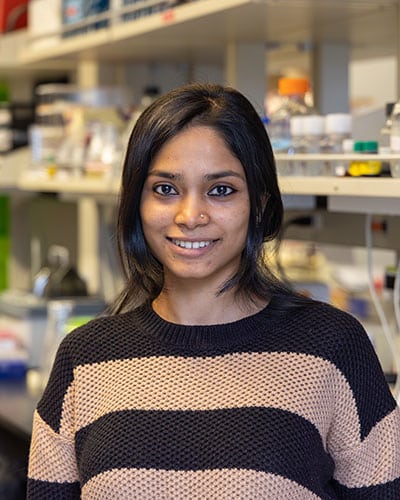
CONTACT INFORMATION
Robert A. Cornell, PhD
Professor & Graduate Program Director
cornellr@uw.edu
206-616-6706
1959 NE Pacific Street
Box 357475
Seattle, WA 98195